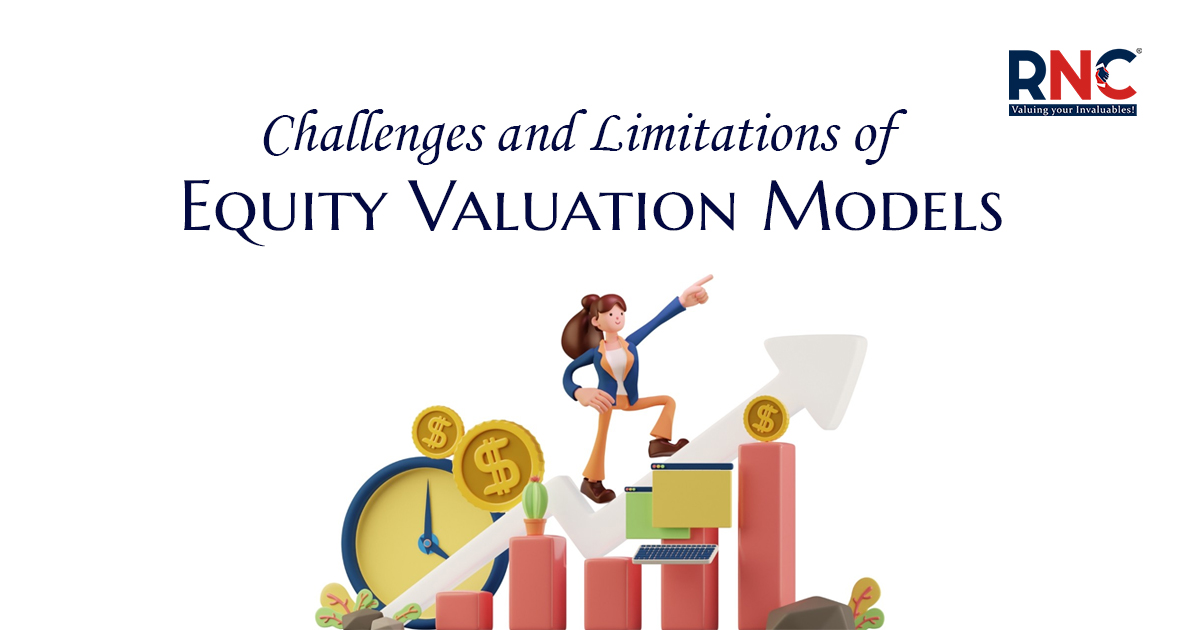
Equity valuation holds significance. It is a tool used by investors, decision makers and financial professionals to evaluate the worth of a company and gauge the potential profitability of investments. However, like any tool, equity valuation models present their fair share of challenges and limitations. In this blog post, we will delve into the balance, between precision and practicality, in equity valuation. Discuss strategies to overcome these hurdles.
Read More: Common Mistakes to Avoid in Equity Valuation: Tips from Seasoned Investors
Equity Valuation Models: An Overview
Valuation models, for stocks, are tools that help determine the value of a company’s stock. These models, whether traditional ones like discounted cash flow analysis or newer approaches such as startup valuation offer ways to assess a company’s worth. By grasping the principles and techniques employed in these models investors can make choices about their investments. In this section, we will give you an understanding of equity valuation models and their significance, in today’s ever-changing business environment.
Limitations of Valuation Models
Valuation models can be quite useful. It is important to acknowledge that they do have their limitations. One drawback is that conventional models, like the discounted cash flow analysis, might not effectively account for the features of startup firms. Valuing startups demands a strategy due to their high-risk nature and limited historical financial data. Moreover, valuation models heavily depend on assumptions and even slight modifications to these assumptions can have an impact on the outcomes. Investors should be mindful of these limitations. Explore approaches when assessing the value of startups or navigating uncertain market situations.
The Challenge of Forecasting Future Cash Flows
Predicting cash flows can be quite challenging especially when it comes to valuing startups. Startups have limited financial data making it tough to make precise predictions. Moreover, market conditions can be volatile adding another layer of complexity to the forecasting process. However, despite these obstacles, investors must navigate through uncertainties to evaluate the profitability of a company. By incorporating approaches and considering scenarios investors can overcome the difficulties in forecasting future cash flows and make well-informed investment choices.
The Influence of Market Conditions on Equity Valuations
The state of the market is extremely important when it comes to determining the value of stocks. Various factors, such as supply and demand, investor sentiment and economic indicators can all have an impact on how much a company stock’s worth. The volatility of the market can cause fluctuations in valuation, which makes it quite challenging to assess the value of a company. Furthermore, market conditions can create both opportunities and risks, for investors since different sectors may perform better or worse depending on market trends. It’s crucial for investors to understand and analyze these market conditions so they can make informed decisions and successfully navigate the changing world of stock valuation.
The Role of Assumptions in Valuation Models
Valuation models heavily depend on making assumptions to calculate the value of a company. These assumptions involve factors, like growth rates, discount rates and future market conditions. However, it’s crucial to recognize that these assumptions may not always align with reality. Economic fluctuations, shifts in consumer behavior and unexpected events can all affect the accuracy of these assumptions. Investors need to be aware of the influence that assumptions have on valuation models and take into account the risks and uncertainties attached to them.
Human Biases in Equity Valuation
As people, we have a tendency to be influenced by biases when it comes to assessing the value of something. Our feelings, encounters and cognitive biases can all play a role in how we make decisions potentially leading to assessments. It’s important for investors to recognize these biases like being too confident or seeking confirmation of our notions and take measures to minimize their impact. By considering perspectives conducting research and questioning our own assumptions we can strive for a more unbiased and accurate valuation process.
Read More Similar Topics: How Revenue Is Important in Business Valuation
The Importance of Combining Different Valuation Methods
It is essential to combine valuation methods to obtain a precise evaluation of a company’s value. Each valuation model has its advantages and disadvantages so by using models investors can overcome the limitations of individual approaches. By analyzing the results from perspectives and considering viewpoints investors can develop a more comprehensive grasp of a company’s worth. This in turn can enhance decision-making. Ultimately increase the profitability of investments.
Conclusion
In summary, equity valuation proves to be an instrument for evaluating the value and potential profitability of investments. Nonetheless, it is not, without its challenges and limitations. From the complexities of predicting cash flows to the impact of market conditions and human biases, investors must overcome these hurdles to make informed choices. By blending valuation approaches and staying mindful of these obstacles investors can aim for precise and practical assessments of a company’s worth ultimately enhancing their investment strategies.
Read trending articles:
What Is Equity Financing? How Can Equity Financing Be Used for Small Businesses?
Future of Investment Banking: Eye-Opening Trends and Challenges to Consider
